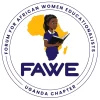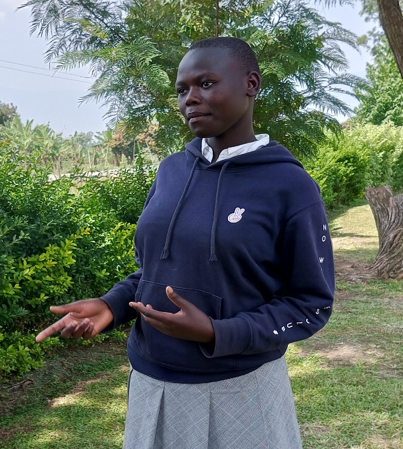Rebecca tells the story of her journey to completing primary education with obvious joy and gratitude. She is one of the beneficiaries of the Second Chance Program that is run by the Forum for African Women Educationists (FAWE) Uganda.
The opportunity to return to school brought much needed relief to the 16-year-old whose mother had forced her to go to work as a housemaid.
“Even when I started studying, my mother was more interested in the money that I had been making as a housemaid than in the education that I was receiving,” Rebecca says.
And true to that, while Rebecca did the hard work of cleaning house, childcare and preparing meals for the family that she lived with, her monthly pay was sent directly to her mother and none of it found its way back to her.
“I couldn’t even afford to buy my own sanitary pads and yet I was working very hard,” she recalls.
As well as not receiving any pay for her work, Rebecca was ill-prepared for many of the chores that she was required to do, having not received adequate training. In addition, as a young girl living away from her family, the job as a maid left Rebecca vulnerable to abuse.
“At night, I was the one responsible for opening the door when my boss’ eldest son came home. He was usually drunk and one day after I had let him in, he tried to rape me. I made a lot of noise and everyone in the house woke up. But nothing was ever done about this.”
It was about this time, in April 2022 that Rebecca heard the radio announcement that was made by FAWE Uganda in partnership with the Kingdom of Tooro and UN Women. The good news was that funding was being availed to enable girls who had dropped out of school during the COVID pandemic to return and complete their final exams. This included students that were about to do their Primary Leaving Examinations (P.7), UCE (S.4) and UACE (S.6). Rebecca signed up for the program and in June 2022, she was back in school.
The program covered several regions of the country and also equipped the girls with skills to empower them to generate income.
“We were taught how to make liquid soap which we can use ourselves, and other entrepreneurship skills where we could make some money,” Rebecca says proudly. “I also now know how to sew my own sanitary pads and I have taught my sisters how to make and sell pads and soap.”
FAWE Uganda holds parents’ meetings for all the families that have children in the program. It was at such a meeting that Rebecca’s mother was finally convinced about the value of the education that her daughter was receiving. She, thus, started to support her, especially in buying the school requirements that were not provided by FAWE Uganda.
Rebecca’s time at school was far from easy, however. Her fellow students despised and teased her when they found out that she had worked as a housemaid. Catching up with her schoolwork was also difficult as she had spent three years out of school and was joining only a few months away from final exams.
“I did not expect to get a first grade,” Rebecca says excitedly.
She got 10 points (English: 3, SST: 3, Science: 2, and Mathematics: 2) and hopes to become a lawyer in the future. Her dream is to be able to advocate for girls’ and women’s rights, “in the same way that FAWE Uganda did for me,” she says.


